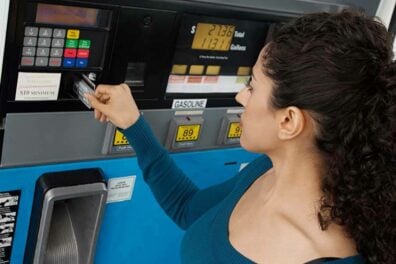How Do Personal Loans Work? [Beginner’s Guide]

We’ve all found ourselves in a position where we need a bit of extra cash. Credit cards can be a solution for small amounts of money, but larger expenses may require more. One way to cover additional expenses in your life — unexpected or planned — is with a personal loan.
But how do personal loans work? How much is the interest on a personal loan? How much money can you borrow? No need to fret. We’ve covered the basics here.
Typical APR For Personal Loans
Personal loans are similar to other types of loans — car loans, mortgages, etc. You borrow money and pay it back over a period of time with interest. The interest and fees associated with the loan are described by the annual percentage rate (the APR).
The APR associated with a personal loan varies depending on a few factors, the most important of which is your credit score. As an example of what rate you might expect to find, According to Business Insider, as of 2020, you can expect varying rates depending on your credit score:
- Excellent credit (720+): you will qualify for the lowest rates often starting around 10%-12%
- Good credit (690-719): expect a rate beginning around 12-%15%
- Fair credit (630-689): expect a rate in the 20% range
- Needs work (629 and below): you could expect to pay more than 30%
As you can see in this example, with excellent credit, you might pay a bit over 10% for a personal loan. But if your credit is on the lower end of the spectrum, the APR might be high. Rates will vary among lenders and other factors this should give you a general idea of what to expect.
How Much Can You Borrow?
The amount you can borrow with a personal loan depends on the lender. Some lenders may place a cap of $15,000 on unsecured personal loans, while others may lend up to $100,000.
The amount you can get approved for also depends on your credit score, though.
Secured vs. Unsecured
Some personal loans are secured, while others are unsecured. A secured loan means that there is some collateral pledged to the lender in the case that you default. Secured loans can be easier to qualify for, even with poor credit, as the lender has some insurance if you are unable to pay the money back.
Collateral can come in several forms. Using cars and savings accounts as collateral is very common.
Often, secured loans have a lower APR, but there is more risk involved. Missed payments on secured loans often impact your credit score more severely. In addition, if you default on the loan, you will not only damage your credit but also lose your collateral.
How Personal Loans Impact Your Financial Health
Personal loans can be good or bad for your financial health. It really depends on how you use them and how you manage them.
For one, opening a new line of credit may improve your credit score by adding to the variety of credit you have. It can also help you build your credit if you make regular on-time payments.
One very popular reason for getting a personal loan is debt consolidation. If you pay off several credit cards with debt through a personal loan, this can help you get a handle on your debt and improve your financial health over time. This is especially true if your personal loan has a lower interest rate than the credit cards you pay off.
On the flip side, if you don’t manage your personal loan responsibly, you could end up deeper in debt. You’ll also have to pay fees to take out the loan in the first place, so make sure you can afford these costs.
Where To Obtain Personal Loans
Many lenders offer personal loans, including banks, credit unions, and online lenders.
Online lenders make it easy to search for and compare loans. Banks also offer personal loans, oftentimes reserved for borrowers with very good credit, while credit unions are a good choice for borrowers who might not have the best credit. Credit unions also offer a wide range of loan amounts, including very small personal loans that might not be available elsewhere.
Regardless of where you prefer to borrow from, one thing you can do is shop around to determine the best APR available to you. Using online calculators for personal loans allow you to compare loans that have different repayment periods, APR, and terms.
Repayment
Once you’ve decided on a loan and taken it out, you’ll sign some paperwork, and the money will be deposited in your account. From there, you’ll make monthly payments on the principal and APR for the term you’ve agreed to. Once the loan is repaid, your account is closed.
Personal Loans vs. Credit Cards
Personal loans and credit cards both have their pros and cons. Usually, credit cards are a good fit for smaller, recurring purchases, while personal loans are better suited for larger expenses and debt consolidation. But it can be a bit more complex than that. Check out our blog post on personal loans vs. credit cards to help you better understand the nuances.
Personal Loans vs. Credit Cards



